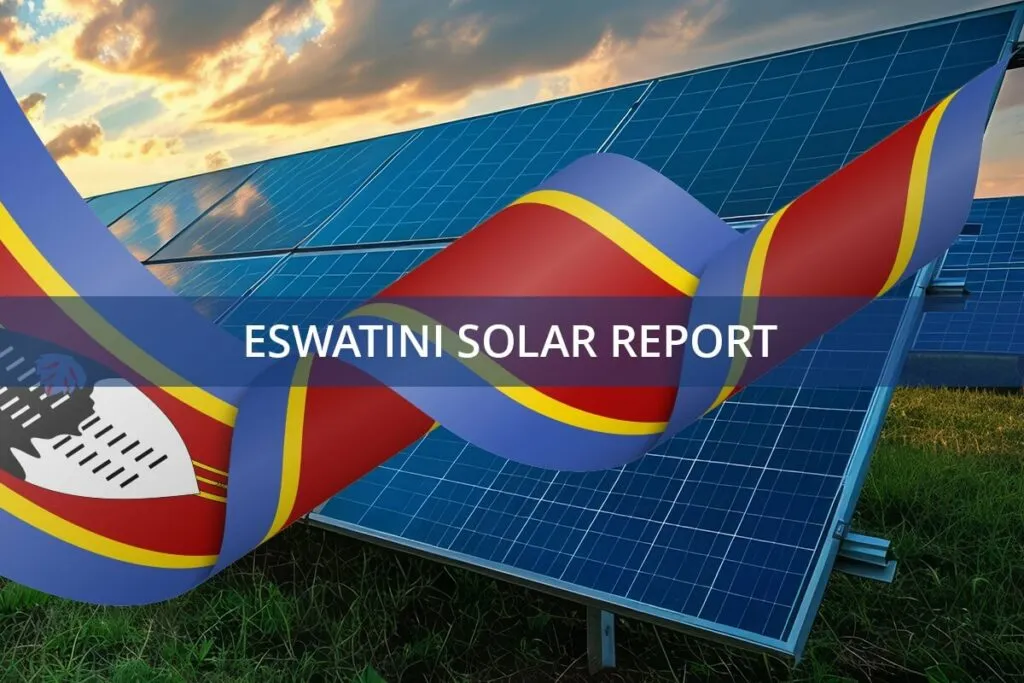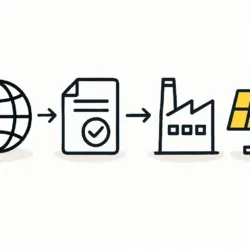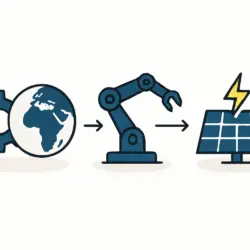The Ngwenya Solar Project has secured a $30 million loan from the Emerging Africa Infrastructure Fund (EAIF) to finance a 100 MWp solar power plant in Zambia. Located 40 km west of Lusaka, the project is set to play a crucial role in addressing the nation’s power shortages and advancing its renewable energy agenda.
Zambia’s Largest Solar Plant Backed by New Financing
A $30 million loan from the Emerging Africa Infrastructure Fund (EAIF), a member of the Private Infrastructure Development Group (PIDG), marks a major milestone for the Ngwenya Solar Project. This funding will support the development of a 100 MWp solar power plant, a significant step forward in Zambia’s renewable energy efforts. The project is being developed by a consortium led by Globeleq, a leading power sector investor and operator in Africa.
Slated for a site approximately 40 kilometers west of the capital, Lusaka, the Ngwenya facility is set to become the largest solar power plant in the country. It will provide clean, reliable electricity to the national grid and help Zambia reduce its dependence on hydroelectric power, which currently accounts for most of its energy supply.
Financing and Key Support for the Ngwenya Project
The EAIF’s $30 million loan is a critical component of the project’s financing, part of a larger package estimated at $100 million. This broader financial arrangement includes additional funding from the International Finance Corporation (IFC), a member of the World Bank Group, and the Industrial Development Corporation of South Africa (IDC).
Further support comes from the Global Energy Transfer Feed-in Tariffs (GET FiT) program, which is managed by the German development bank, KfW. GET FiT provides financial incentives to renewable energy projects in Zambia, helping to make them more economically viable.
The project also benefits from a long-term power purchase agreement (PPA) with ZESCO, Zambia’s state-owned electricity utility. Under this 25-year PPA, ZESCO will purchase all electricity from the Ngwenya Solar Plant at a fixed price, providing financial stability and ensuring the power it generates will be fully utilized.
Project Timeline and Economic Impact
Construction of the Ngwenya Solar Plant is expected to begin later this year and is scheduled for completion by 2025. Once operational, the plant will generate enough electricity to power approximately 40,000 homes in Zambia. This new capacity will also help reduce the country’s reliance on hydroelectric power, which has been affected by droughts in recent years.
The Ngwenya Solar Project is also poised to have a positive impact on Zambia’s economy by creating jobs during construction and providing ongoing employment once the plant is operational. The project will help diversify Zambia’s energy mix, making the country’s electricity supply more resilient to climate change.
Furthermore, the project will make a key contribution to Zambia’s efforts to reduce greenhouse gas emissions. By replacing fossil fuel-based electricity with clean solar power, the Ngwenya Solar Plant will help lower the country’s carbon footprint.
Advancing Zambia’s Renewable Energy Agenda
The Ngwenya Solar Project marks a significant milestone for Zambia’s renewable energy sector. It demonstrates the potential of solar power to address the nation’s energy challenges and support its economic development.
This initiative is also a testament to the importance of international collaboration in financing and developing renewable energy projects in Africa. By bringing together financial institutions, development agencies, and private sector partners, the Ngwenya Solar Project helps pave the way for similar ventures in Zambia and across the continent.
The success of the Ngwenya Solar Project could serve as a model for other countries in the region looking to expand their renewable energy capacity. With the right support and financing, solar power can play a crucial role in meeting Africa’s growing energy needs while reducing reliance on fossil fuels.



